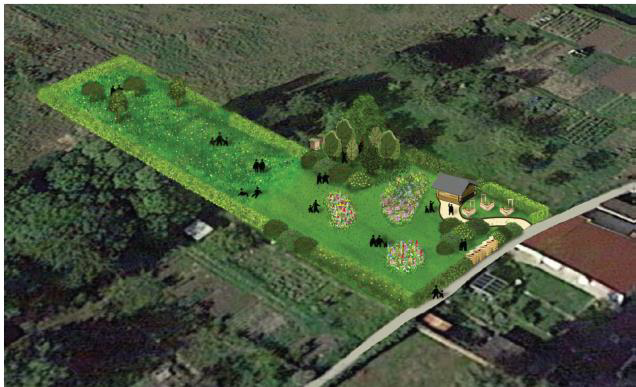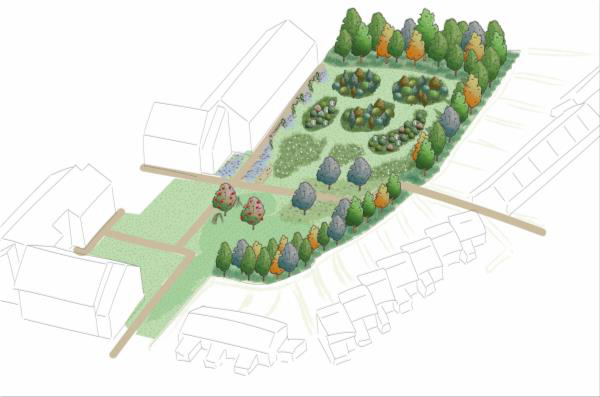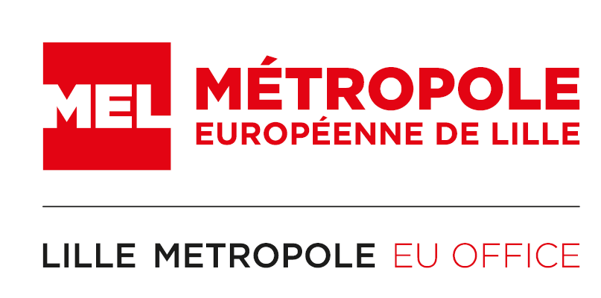
Lille metropole's participatory budget: local advantage for the ecological and civic transition.
In 2024-2025, Lille Metropole is launching the second edition of its participatory budget, with a clear and ambitious objective: to make biodiversity an issue of civic mobilization. With a budget of 1.2 million euros, or around 1 euro per inhabitant, this scheme puts citizens at the heart of local public policy by involving them in the design of projects of general interest, while consolidating the ecological transition of the territories.
This themed edition, in line with the legacy of the Paris 2024 Olympic Games, is founded on four pillars:
Encouraging citizen initiative ;
Financing projects led by residents ;
Strengthening local democratic dialogue ;
Creating links between sporting ambition and nature conservation.
In concrete terms, from May 5 to June 29, each citizen can submit a project on Lille metropole's participation platform, targeting public land of between 1,000 and 3,000 m². An online tool is available to help citizens define the surface area, add to their file (photos, attachments) and formulate their proposals. Submission is open to all, in unlimited numbers, either individually or collectively.
The selection of projects is not based on a popular vote, but on a pluralist citizens' commission, comprising 20 to 30 members: citizens chosen by lot, representatives of metropolitan bodies, and members from local structures (social centres, municipal children's councils, etc.). Lille Metropole then manages the projects in conjunction with the local authorities, who accompany the process through to implementation on the ground.
Selection criteria ensure that projects are consistent with Lille Metropole's competencies and republican values. Projects must be non-profit-making, achievable within two years, and aimed at reconnecting people with nature: hedgerows, ponds, fruit orchards, nesting boxes and educational biodiversity areas are just a few examples of expected actions.
A local initiative in line with the European Union's main priorities.
In addition to its local scope, this initiative is fully in line with the European Union's main priorities. Firstly, in terms of democracy: Lille Metropole’s participatory budget embodies the values promoted by the European Union through the CERV (Citizens, Equality, Rights and Values) program. It responds to the expectations formulated at the Conference on the Future of Europe, where citizens expressed the need to be more involved in drawing up public policies.
Secondly, from an environmental point of view, Lille Metropole is in line with the objectives of the EU's Biodiversity Strategy 2030, which aims to restore degraded ecosystems, promote nature in cities, and strengthen green infrastructure. By facilitating local projects, the participatory budget becomes a lever for ecological resilience and a tool for adapting to climate change.
In addition, the mobilization of young people, via projects led by secondary schools or children's councils, echoes the orientations of the Erasmus+ program or the European Solidarity Corps, and extends the momentum of the European Year of Youth (2022) in favour of environmental commitment.
Finally, this local initiative makes a concrete contribution to the ambitions of the Green Pact for Europe. Although Lille Metropole is not one of the 100 climate-neutral cities selected by the European Commission, it demonstrates by example that any metropolitan area can act, by involving its residents in the transition.
In short, this participatory budget is much more than a local tool: it is a demonstration that shared ecological governance can be born in neighbourhoods, as part of a European vision of the future. It is a model to be followed, promoted and linked to European cooperation dynamics, such as those supported by the URBACT, Interreg Europe and LIFE programs.



